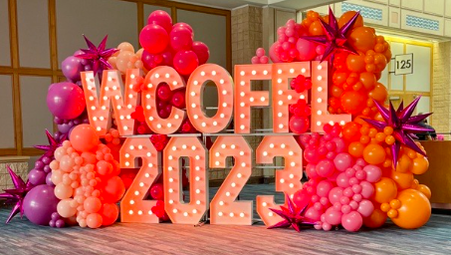 Shabnam Mitchell, PMP, PMI-ACP Shabnam Mitchell, PMP, PMI-ACP The Women's Conference of Florida took place last month in Tampa, and I had the pleasure of attending. The last time I attended in 2019, I met and heard inspiring life stories from Abby Wambach, Monica Lewinsky, and Reshma Saujani. A lot has changed in the last four years, and I was curious to hear how the landscape had changed for women and the conversations around them. This year, I was excited to hear from Lauren Simmons, the wolfette of Wallstreet, Diane Obrist on leveraging our strengths, Mckinsey on the 9th annual report on Women at Work, and Katty Kay, US Special Correspondent for BBC. While I enjoyed several panels and discussions, the speaker that resonated most with me was Katty Kay. Already reading her newly released book, The Power Code, I was struck by the distinct shift in her messaging. It wasn't that women needed to change to have more positions of power but that the definition of power needed to change. She explained that traditionally, power was defined as 'power over,' a definition that most women are not inclined towards. However, when female leaders were asked what power meant to them, the definition was overwhelmingly 'power to,' a purpose-driven tool focused on what can be achieved. The research done by Katty and her co-author Claire Shipman indicates that the examination of best practices in the workplace and relationships at home can produce a less ego-driven world that is more impactful. In short, having women in power was great for society overall. She answered the question, what is the benefit of breaking the glass ceiling and achieving gender parity?  All this made me think, how does having a female CEO shape the company? Here at QIC, we have all partaken in a stretch goals exercise to provide our leadership insights into what we would be excited to work on. Our CEO is using this information to guide the company's future to be inclusive of the goals of its employees. She uses her power to include her employees' aspirations in its vision. A more balanced, inclusive, and empathetic world where we leverage our strengths gives me hope for what's ahead.
0 Comments
|
AuthorsThese posts are written or shared by QIC team members. We find this stuff interesting, exciting, and totally awesome! We hope you do too! Categories
All
Archives
June 2024
|

 RSS Feed
RSS Feed